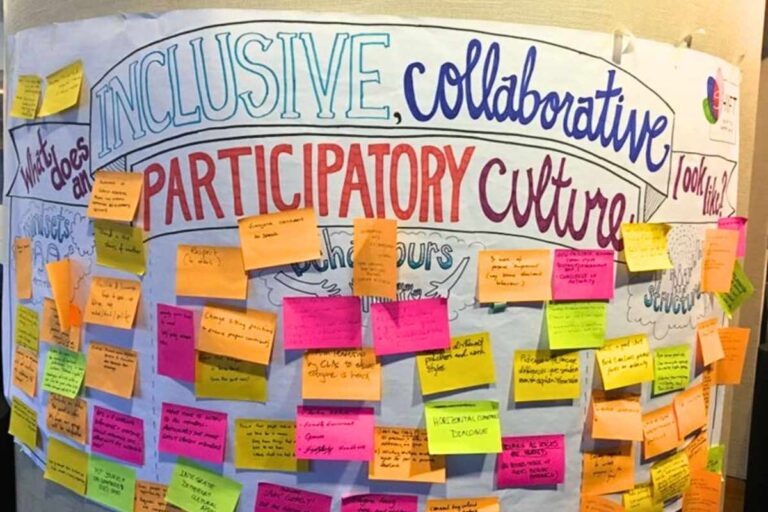Climate change
We understand climate change not only as a technical and environmental problem but also a human and social one. We focus on building the conditions and capacities needed to support sustainable change from the inside out—in individuals, groups, organizations, and communities.

Climate change adaptation
Working closely with technical and policy experts, we bring the process and communications expertise to support organizations, communities, and collaboratives to deepen understanding of complex topics, build capacity for collaboration and implementation, and better inform climate vulnerability and risk assessments and plans. We specialize in working across a wide range of climate-related topics with a particular focus on the health, equity and social dimensions of climate change.

Health and climate change
Climate change is one of humanity’s biggest health challenges. We support all levels of government, health authorities, and community sectors to understand, plan for, and address the health and social impacts of climate change. Through a ‘multi-solving’ approach, we support solutions that enhance resilience, health, and equity.

Climate equity
Inequities are amplified by the impacts of climate change, putting marginalized populations at higher risk. Using intersectional, trauma-informed approaches and gender-based analysis (GBA+), we support partners to understand climate impacts on diverse populations and apply a climate equity lens to policies, plans and programs. We centre the expertise of people with lived experience in our research, engagement, and planning.
How we can help you

Examples of our work in this area
From Risk to Resilience – Climate Change and Health in B.C. (2022 – 2024)
Climate 2050 Health & Wellbeing Roadmap (2023)
Integrating Equity in Provincial Risk Assessments (2022 – 2023)
Intergovernmental Panel on Climate Change: Strengthening Inclusion and Participatory Practices (2019 – 2023)
Flood Recovery in the Lower Fraser Region (2022 – 2023)
Pacific Institute for Climate Solutions: Theory of Change (2023)
Environment and Climate Change Canada Collaboration Coaching (2022 – 2023)
Resources
Read a selection of reports and publications from our climate change-focused work








